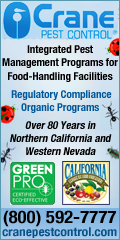
| Archives/Subscribe | www.clfp.com | Contact Us | July 3, 2012 |
The Consequences of Failing to Comply With CARB's Cap-and-Trade Program
Prior articles have appropriately urged companies to prepare for the California Air Resources Board’s ("CARB") Cap-and-Trade program (AB 32) by evaluating projected annual greenhouse gas ("GHG") emissions and by negotiating with CARB for an appropriate number of emission credits (called "allowances"). The complicated and compounding consequences of failing to comply with AB 32’s emissions-allowance system can be financially onerous. This makes it imperative that companies acquire sufficient allowances at the outset. Beginning in 2014, on April 10 each year, companies will report their GHG emissions from the previous year. By November 1, companies must tender an amount of allowances equal to 30 percent of the number of metric tons of GHG actually emitted in the prior year – except in 2015, 2018 and 2021. Those are "true-up" years where companies must surrender enough allowances to cover their total actual emissions during the previous two-year period (in 2015) or three-year period (in 2018 and 2021). The following example demonstrates the severe consequences of failing to surrender enough allowances in true-up years. Let’s suppose that it’s April 2015, and a company has 20,000 allowances, which it thought was going to be sufficient to cover its 2014 emissions, plus its deferred obligation from 2013. But, in the process of preparing its 2014 emission report, the company realizes that it is 2,500 allowances short. That company will have less than six months to acquire 2,500 additional allowances, either at a state-run auction or from third-parties. Because the market for allowances permits non-stakeholder participation, it may be difficult and/or expensive to acquire additional allowances. If the company in our hypothetical situation fails to acquire the full 2,500 additional allowances by November 1, 2015, its outstanding obligation will quadruple. Assuming the company is still 2,000 allowances short on November 1, it will now owe 8,000 allowances, and this total is due December 25, 2015. What now? Every allowance a company still owes after the December 25, 2015 deadline is a separate "violation" of AB 32. Every allowance still owed 45 days thereafter is an additional violation. So, in the above scenario, if by February 8, 2016, our hypothetical company can only acquire 3,000 additional allowances, it will have committed a total of 13,000 violations (8,000-allowance deficit on December 25, 2015, plus 5,000-allowance deficit on February 8, 2016). For every violation, CARB may seek misdemeanor criminal prosecution and monetary penalties. The monetary penalties can be up to $75,000 per violation, depending on a number of factors such as the company’s level of fault as determined by a court. Given the potentially large number of violations involved, the monetary penalties can be huge. While CARB may not seek large monetary penalties in the early years of the program, it is important to understand the potential financial ramifications of violations. In addition to severe monetary penalties, CARB and certain other State agencies may seek a court order preventing a company from exceeding certain GHG emissions levels and/or other violations of AB 32. Depending on the circumstances, this may cause a major business disruption. In short, AB 32 allows CARB to severely punish Cap-and-Trade participants who fail to meet their allowance obligations. Allowances are not the only method of meeting AB 32 Cap-and-Trade requirements, but other options are limited and will be addressed in a later article. Suffice it to say that a failure to accurately estimate future emissions and acquire sufficient allowances now could result in oppressive penalties and business disruptions down the road. |
|
| CALIFORNIA LEAGUE OF FOOD PROCESSORS 2485 Natomas Park Dr., Suite 550 Sacramento, CA 95833 Phone: (916) 640-8150 Fax: (916) 640-8156 www.clfp.com |
 |



